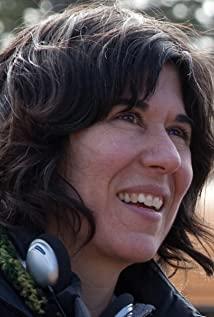This kind of activity to select independent films as an independent item is set up to encourage the recognition of low-budget films, and has now become the highest honor in the independent film industry. "Winter's Bones", with its calm and restrained lens language and desolate and pitiful photography tone, not only made it shine in the exhibition, but also made the film uniquely feminine and intellectually beautiful with the heroine's perseverance and self-improvement spirit. At the same time, it also conquered the hearts of most audiences.
Based on Daniel Woodrell's novel of the same name, the film is set in the remote Ozark Mountains of Missouri, USA, and tells the story of a 17-year-old girl's rough experience of finding her father. The story takes the girl's way of searching as the perspective, and in the exploration, brings out the cruel fact that the father's mystery and the local brutal violence are the right way, and then a murder case also reveals the tip of the iceberg. If the girl Lei's path to find her father is the main line of the film, then the cause of her father's death is the auxiliary line. The main line is clear and monotonous, and the auxiliary line is confusing. Dull feeling. At the beginning of the story, the young girl Lei was exposed to her struggling life, taking care of her mentally ill mother, and raising a pair of younger siblings who were not familiar with the world. A beautiful girl who should have enjoyed a great youth has become the backbone of the family, and this is just the beginning of bad luck. , Father's bail made this already precarious family even worse. As a woman, Debra Granny did not give too much sympathy when portraying Lei's character and destiny, but used the hazy atmosphere of the picture and the cold weather to set off the rendering, depicting Lei's siblings' affection. He is also extremely restrained, without any emotional catharsis, only through some trivial things, such as teaching his younger siblings how to use a gun, and letting his younger brother dig out the internal organs of squirrels to overcome psychological fear.
The story focuses on Lei's protection of the family and her stubborn search, but the truth about the cause of her father's death is avoided. As Lei said, "he has paid for his actions." In a place where law and conscience are ignored, revenge can only fuel hatred and violence, and perhaps understanding and tolerance are the best solutions. When the film focuses on describing the rampant indifference and violence, it still does not forget to paint a touch of warmth on human nature, whether it is the constant relief from neighbors, the timely help of friends, or the discovery of uncle's conscience, all of which are cold and gloomy in the film. Under the color, a few warm bright colors are added.
Lei finally won back what belonged to her. In this difficult process of finding her father, she also grew and transformed rapidly and completed a self-salvation. This redemption comes from a girl's self-esteem and self-love, and from a woman's sense of independence. Awaken. In that gloomy and cold winter day, she was like a bone, in the desolate wind, hard and arrogant to support the sick mother and the weak younger siblings. It is not difficult to see that the film has a meticulous portrayal of the awakening of women's feminist consciousness, from the girlfriend driving her husband's truck to the scene where a group of women does not let the man interfere in the gang fight; from the generous help of the female neighbor again and again, to that The group of women finally found their conscience and helped Lei find her father's body. What we are presented with is the process of women gradually becoming independent and gradually getting rid of male control.
There is a little suspense at the end of the film which is quite meaningful. My uncle came to see them and forgot their three siblings. When he left, he didn’t take the guitar that Lei gave him. It seems that he should have gone to avenge Lei's father, and this time, he should also die. Obviously, it was Lei who had awakened his conscience. Compared with Lei's perseverance, he was like a guinea pig in a glass jar, cowardly and selfish. In fact, for him, death could be regarded as a way of comforting the souls of the dead. A good home for self-salvation.
View more about Winter's Bone reviews











